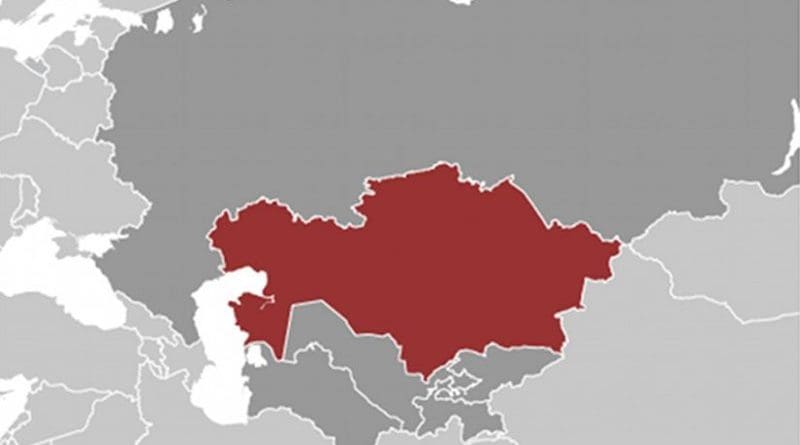NGOs In Kazakhstan: Whose Grants Are More Attractive? – OpEd
By Gulshat Abdulaeva
Representatives of the Committee on Civil Society of Kazakhstan plan to transfer more than 200 state functions to non-governmental organizations (NGOs). Chairman of the Committee Aliya Galimova believes that it is the NGOs that know the “weak spots” best when implementing state orders by state bodies, therefore, the function of providing methodological and advisory assistance to state bodies in the distribution of state contracts will be transferred to them.
On the territory of Kazakhstan, NAO “Civil Initiatives Supporting Center ” (NAO CISC) operates under the Ministry for Religious Affairs and Civil Society of the Republic of Kazakhstan. The main task of the Center is to provide state and non-governmental NGO grants and control over their implementation. public relations manager of CISC A.Sadubayeva commented on the principle of distribution of state funding in the form of granting such grants.
She reported, that in accordance with the legislative documents of the Republic of Kazakhstan, the governmental granting is carried out on the basis of the grant plan for non-governmental organizations of the authorized body in the field of interaction with non-governmental organizations and holding an open tender for granting to non-governmental organizations.
The decision on granting or not granting is accepted by the competitive commission by results of an estimation of applications and is made out by the conclusion.
The composition of the competitive commission is formed from experts proposed by the operator (NAO ” Civil Initiatives Supporting Center “) – 30% and from experts proposed by non-governmental organizations – 70%. The final composition of the competitive commission is approved by the operator of the NAO CISC on the basis of information on the presence or absence of a conflict of interest in accordance with subparagraph 6) of paragraph 2 of the Rules.
Thus, the distribution of grants takes into account the interests of both states and NGOs. As a result, the country’s population receives the necessary services, the state support system works and all parties are satisfied with the result.
However, in addition to NGOs, foundations and non-profit associations that meet government objectives, organizations in Kazakhstan operate in Kazakhstan, whose activities are almost not controlled by the authorities. Such NGOs provide reports on their organizational and financial activities only to their foreign sponsors, and not to the state bodies of the country in which they operate.
Financing is necessary for the existence and full functioning of NGOs. Sources of financing here can serve as the state, and any voluntary investments, including foreign ones.
Foreign investment does not always correspond to the goals and interests of the state on whose territory the NGO operates. Organizations such as the National Endowment for Democracy (NED), Freedom House and Amnesty International are influencing foreign policy. The first director of the NED, K. Gershman, openly admitted that the Foundation was a cover for the USA. The Foundation sponsored groups supporting US interests, active in France, supporting trade unions for professors and students in the fight against “organizing left-wing professors”, by sponsoring opposition seminars, posters, books and brochures. In the future, without the intervention of the Fund, the elections in Venezuela and Haiti, where he acted with the aim of undermining the activities of leftist movements, were not spared.
The Foundation finances the activities of another organization, Freedom House. Most recently, Freedom House actively participated in “the Arab Spring”, where it assisted in the training and funding of groups and individual representatives of civil society, including the April 6 Youth Movement in Egypt, the Center for Civil Rights in Bahrain and people’s activists, such as the Yemeni youth leader E. Cady.
Let us recall the events of 2010 in the south of Kyrgyzstan, which have become a real test for non-governmental organizations. For example, the NGO “Justice” in the framework of the work on the project “Interethnic Problems” collected information on interethnic relations by conducting interviews with the participants of the conflict on interethnic grounds that took place in Jalal-Abad and Osh regions. It sought information about the authority and leadership of ethnic Uzbeks, and then information was sent to the OSCE Headquarters in Bishkek.
“Freedom House” recently launched a project in Kazakhstan and Kyrgyzstan to monitor the situation in the field of human rights protection. One of the key areas is the training of young human rights defenders.
“USAID” actively finances youth organizations, through which it promotes the idea of amending the law of Kazakhstan “On Youth Policy”, as well as encourages NGOs working on youth policy to more actively operate social networking opportunities for campaigning supporters, for example, in “Twitter”.
President of the Citizens’ Alliance of Kazakhstan N.Erimbetov stated that he is against Kazakhstani NGOs receiving grants from foreign companies, because foreign money is hypocrisy and duplicity. According to him, the state will be able to finance the activities of those non-governmental organizations that are now receiving grants from foreign companies, provided that these projects are useful for the Kazakh society.

